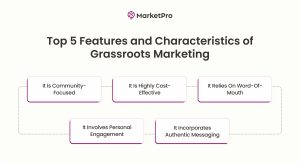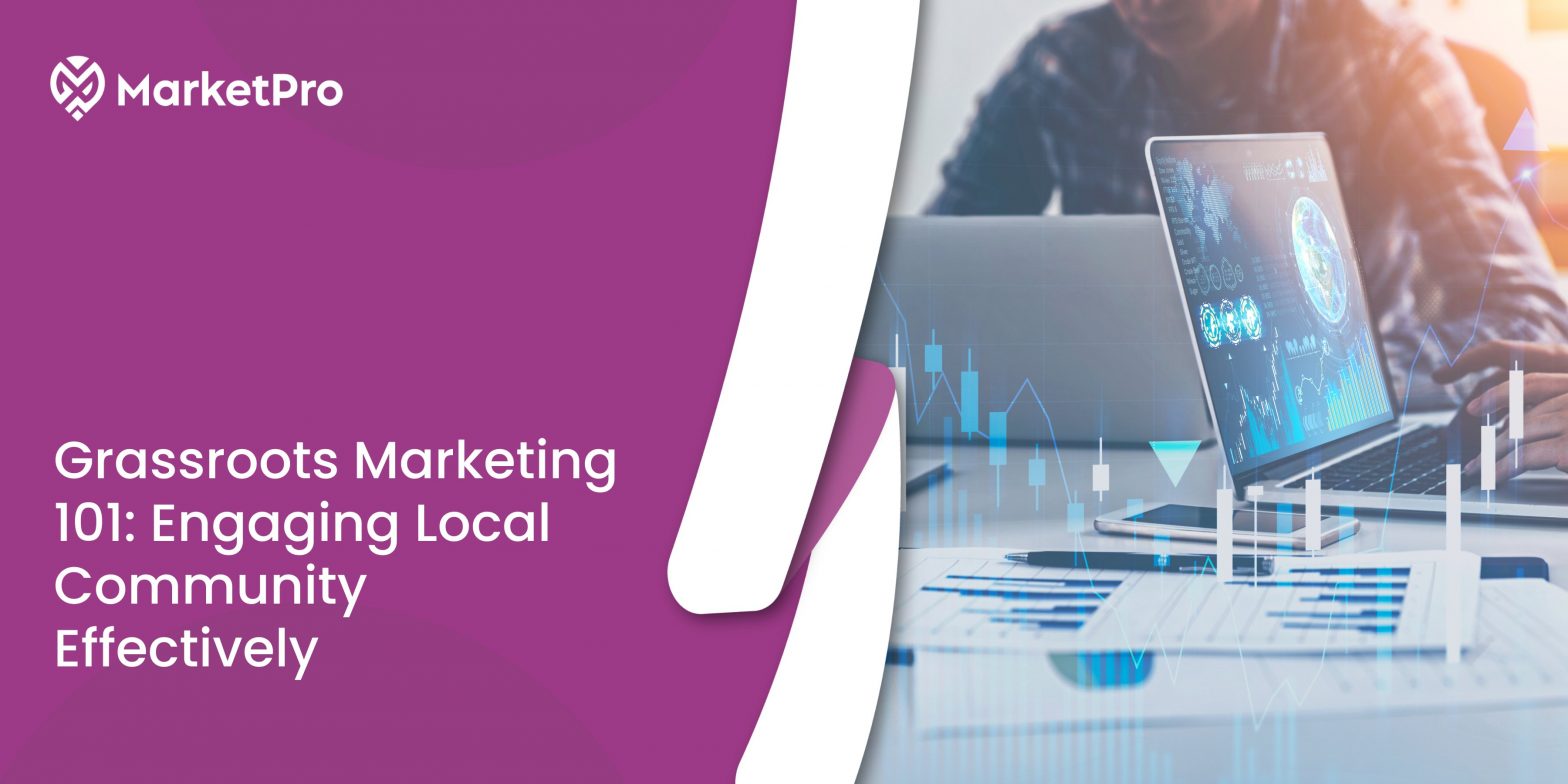When looking for low-cost and high-impact strategies, two approaches are often considered: Grassroots marketing and guerilla marketing. But they both work in very opposite ways. So which one is better?
To explain the above, we will take the example of two companies that are adopting these approaches. Patagonia is a clothing brand that uses grassroots marketing to reach out to niche and targeted clients. They connect deeply by conducting local events and enhancing their storytelling.
On the other hand, Red Bull uses guerilla marketing and tries to capture the global audience with their adrenaline-stimulating ads and campaigns.
As a result, Patagonia is able to nurture slow but organic and long-term growth, thus fostering community engagement. Red Bull grabs instant attention with its disruptive campaigns; however, the results of these campaigns are often slow.
Although both pathways work, grassroots marketing is much better when it comes to sustainable results. Read all about grassroots marketing, grassroots marketing campaigns, and the many benefits associated with them.
What is Grassroots Marketing? Simplifying the Basics
Instead of relying on broad campaigns that target a large number of users, a grassroots marketing campaign will focus on targeting a specific niche or community to spread brand awareness.
It follows a ground-up approach and engages a small number of loyal consumers who can relate to the brand’s message and spread it further.
A grassroots campaign is deeply personal and involves the use of local events, expert social media management services, and community involvement for brand outreach and engagement.
Did you know that the best way for grassroots marketing is to ensure that your initial audience feels a genuine connection to the brand or its message? Here is how you can use brand reputation management to ensure consistency in brand message.

Guerilla Marketing vs Grassroots Marketing: Main Differences
| Aspect | Guerilla Marketing | Grassroots Marketing |
| The focus of the Strategy | Includes High-impact and surprise campaigns that catch the audience instantly | Ensures Niche and community-based efforts that are more specific. |
| Target Audience | Engages with a large number of audience that is often broad | Audience includes a targeted and small community or specific group |
| Tactics Used for Engagement | Uses unconventional and creative methods like stunts to capture the attention of the user. | Engages consumers directly and focuses on building ties with the community through brand messaging. |
| Budget for the Campaign | Can involve a minimal to moderate budget for high visibility | Has a generally low budget that relies on word-of-mouth |
| Goal of the Campaign | To create a buzz and shock factor | To build trust and long-term connections with the audience members |
Designing a Grassroots Marketing Campaign: Top Strategies
Did you know that around 72% of social media brand engagement happens on local pages and involves community members? Designing a grassroots marketing campaign can be done if you follow the top strategies. Here are some foolproof strategies for you.

1. Correctly Identifying your target audience
Identifying the right target audience is the most crucial step in a grassroots campaign. Before jumping on the bandwagon and copying other people’s strategies, ask yourself the following questions:
- Why am I doing the grassroots campaign as opposed to another campaign?
- What is my end goal for my campaign? Is it more followers, increasing ROI, or simply getting brand awareness?
- Who is my target audience? In what ways can my followers help me achieve my end goal?
- What specific grassroots marketing strategy can I use within my campaign to achieve my end goal?
- How will I assess the success of my campaign? How do I figure out whether my target audience is the right fit?
If you are using a grassroots campaign for the first time, try using tools that allow you to segment your audience and track the groups that you are targeting.
2. Figure Out The Exact Pain Points of Consumers
Figuring out the exact pain points of your customers is extremely crucial to a business, especially one that is aiming for a good grassroots marketing campaign.
To understand this, think of a small fintech start-up company that does a manual identity verification process. They often struggle with delayed customer responses and satisfaction.
Programmers Force is a company that specializes in AI-driven verification solutions. It was discovered that many companies were wasting their resources on outdated methods.
When launching their new product, they made sure that they took the pain points of their customers into consideration and focused more on real-time identity solutions that would eliminate inefficiencies.
Similarly, your brand can also engage in deep customer research through surveys, social media listening, and direct feedback. Once the pain points of consumers are discovered, you can move to the next stages of grassroots marketing.
3. Creating Content and Solving the Pain Points of Your Consumers
In the third stage, a brand will be responsible for creating the most accurate, precise, and relevant content for its audience. But this is not as easy as it seems.
Here is the catch. Oftentimes, brands focus too much on ranking, engagement, and retention and miss the central idea of grassroots marketing, which is adding value to the lives of consumers and ensuring that their issues are resolved through your product.
Here is what you should consider when creating high-quality content that is geared specifically towards your target audience.
- Using emotional and psychological triggers to create a connection.
- Use micro-influencers to create authentic user-generated content for greater authenticity.
- Capitalize on the most trending topics in the market.
- Support a good cause and make sure your content is used to fulfill your corporate social responsibility.
Top 5 Benefits of Using Grassroots Marketing
If you want to build big but start small, the grassroots marketing campaign is your way to go. Here are the top 5 benefits of the campaign for you.
1. Cost-Effective Outreach with Maximum Impact
This strategy relies on relatively low-cost but high-impact tactics such as word of mouth, community events, and great social media buzz. It is, hence, perfect for small businesses and startups
2. Authentic Connections Build Strong Loyalty
Rather than adopting a one-shoe-fits-all strategy, look to gradually build more authentic connections. This will help you retain customer loyalty, as customers are more likely to trust brands that make them feel part of a community.
3. Fuels Viral Word-of-Mouth Growth
Grassroots campaigns thrive on word-of-mouth. When people are excited about your brand, they’ll share it with their networks, thus amplifying the message of your brand organically. This can help create a ripple effect for your brand and boost engagement.
4. Highly Targeted Engagement
Grassroots marketing allows you to zero in on a specific audience, thus focusing on a community or niche group. This precise targeting leads to more meaningful interactions and higher engagement rates.
5. Boosts Brand Credibility and Trust
Lastly, a good grassroots campaign will help position your brand as an authentic entity. People are more likely to support a brand that they see as engaging with real people rather than relying on traditional methods.
Develop Genuine Connections with your customers with Market Pro
Whether you are using a guerilla marketing campaign or a grassroots campaign, the end goal should be the same: creating authentic relations with your user. However, achieving this can be difficult, especially if you are a startup struggling to stand out in the crowd.
Market Pro offers content, social media, PPC, SEO, and PR marketing services that help you achieve the best ROI. Our team of experts focuses on researching top trends and topics so that you can engage with a broad range of audiences without losing your brand message.

